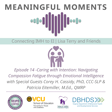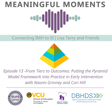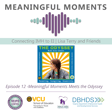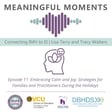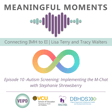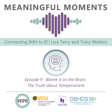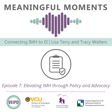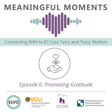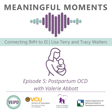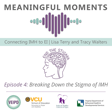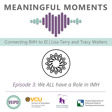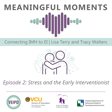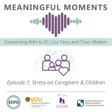
Caring Across Colors: Bridges to Understanding with Kirsten Sippel-Klug and Kena Chambers
In this insightful episode, our special guests, Kirsten Sippel-Klug and Kena Chambers, shed light on the process of building a stronger therapeutic relationship despite cultural differences. They discuss how they fostered a positive working relationship by navigating the nuances of their backgrounds. The conversation delves into instances of mismatch and repair, highlighting the challenges faced and the strategies employed to overcome them. Additionally, the guests share a pivotal moment in their collaboration that significantly contributed to the development of their relationship. For therapists and parents interested in creating their own positive therapeutic relationships, valuable advice is offered based on the guests' experiences. Tune in to gain valuable insights into cultivating meaningful connections in therapeutic settings.
Resources:
John, M. S. S., Thomas, K., & Noroña, C. R. (2013). Diversity-informed infant mental health tenets: Together in the struggle for social justice. Retrieved from https://perspectives.waimh.org/wp-content/uploads/sites/9/2017/05/ZERO-TO-THREE-Corner.-Diversity-Informed-Infant-Mental-Health-Tenets-Together-in-the-Struggle-for-Social-Justice-.pdf
Vikitsreth, N. (2022). Queering “Ways of being:” Replacing politeness with honesty to create belonging. Zero to Three, 42(4).
Nat Vikitsreth, LCSW, DT, CEIM, Founder of Come Back to Care, Inc.
Listen to the Come Back to Care Podcast: https://www.comebacktocare.com/podcast
Join the Care Collective Newsletter and receive hope-filled and helpful info about Decolonized, Embodied, & Intergenerational parenting every Sunday: https://www.comebacktocare.com/newsletter
Or connect on Instagram: https://www.instagram.com/comebacktocare/
